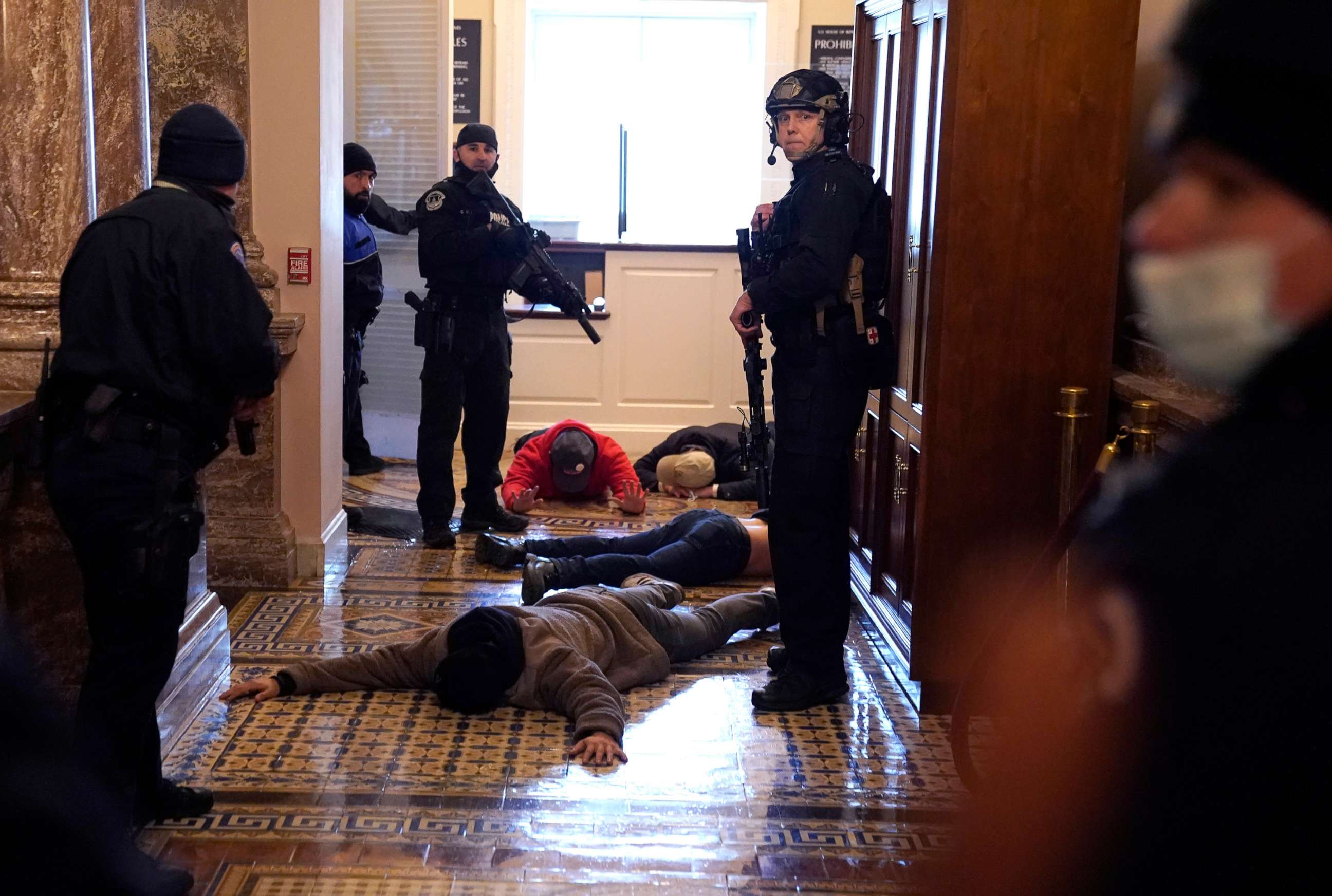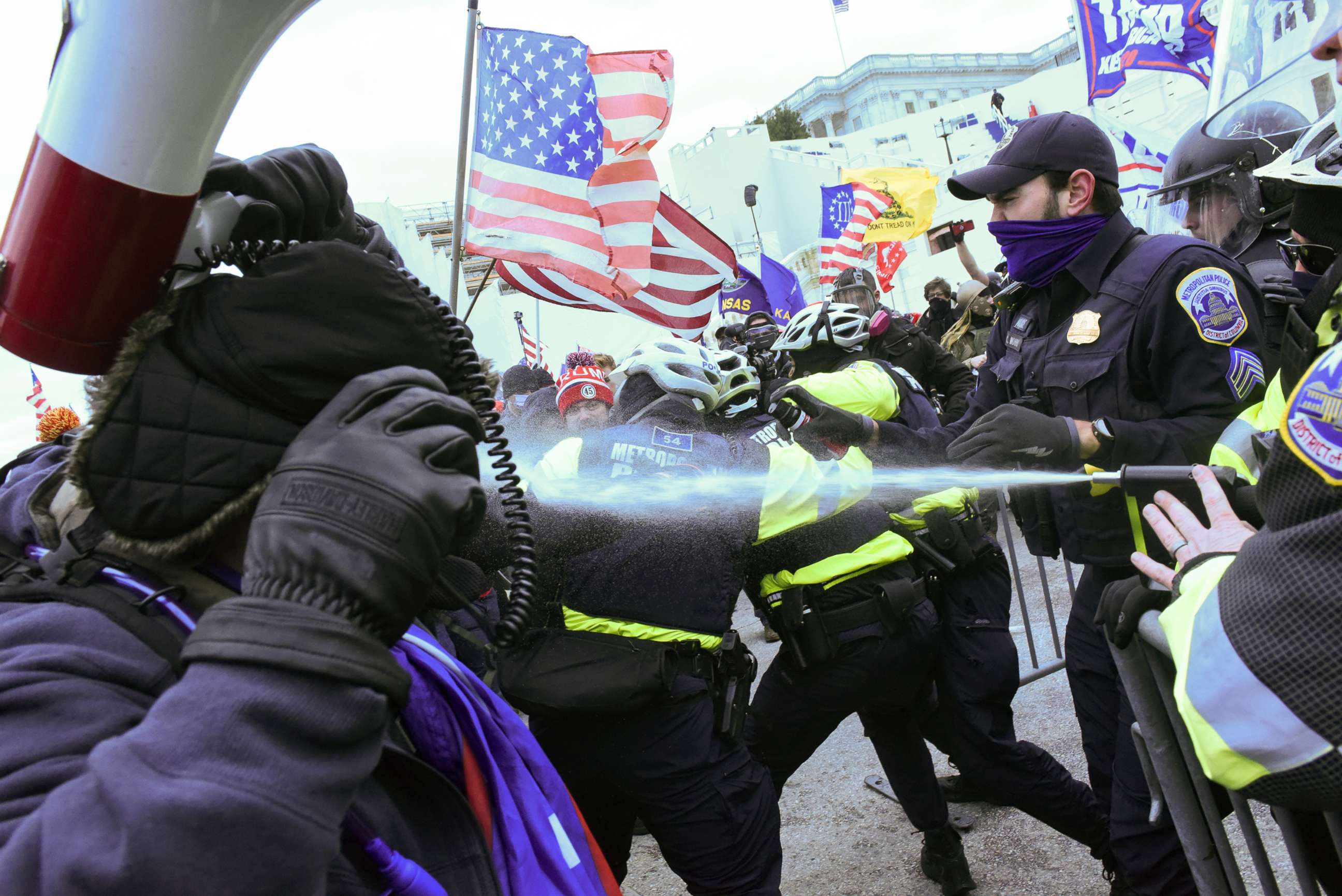The mental toll of the Capitol siege on the American psyche
Experts warn the attack could take a toll on the nation’s mental health.
After a notorious 2020, troubled by the challenges of the COVID-19 pandemic, elections, riots and environmental crises, many Americans looked toward 2021 with hope. However, on Jan. 6, a pro-President Donald Trump mob stormed the U.S. Capitol in protest of the 2020 election results. Violence ensued and at least four lives were lost.
Americans once again found themselves glued to their televisions, computers or radio shows, fearing that our nation was in crisis. Psychiatrists and psychologists now warn the event is taking a toll on mental health.
"Americans are hurting in the pandemic and this makes the pain, fear and stress that many of us are feeling much worse," Dr. Jeffrey Geller, American Psychiatric Association's president, said in a statement Thursday.
Wednesday simultaneously marked the deadliest day since the COVID-19 pandemic began as hospitals around the country exceeded their intensive care unit capacities and reached their breaking point.

Faced with images of crowded hospitals, ventilators and funerals, the American psyche has been assaulted by daily threats. While COVID-19 was once a threat "out there," it has now become a ubiquitous threat "in here" -- affecting our friends, neighbors, and those closest to us. Similarly, growing political tensions in the United States, which were once "out there" on the fringe of the internet have suddenly found themselves "in here," busting down the doors of the nation's Capitol.
Instead of beginning the year with the hope brought by the COVID-19 vaccines, ongoing political and health threats have compounded to repeat a cycle of chronic stress many Americans have been suffering for 10 months.
Pandemic anxiety is wreaking havoc on Americans. The American Psychological Association's 2020 Stress in America survey revealed that nearly 78% of American adults found the COVID-19 pandemic to be a major source of stress in their lives.

Once believed to be simple worries confined to the mind, stress and psychological trauma are real, physical phenomena manifested in the physical brain. By now, decades of scientific research show that psychological trauma can create tangible and long-lasting harm.
Threats to our security: fears of contracted COVID-19 or that the nation is on the verge of war -- activate the sympathetic nervous system in the human body. This is the fight-or-flight body system that interacts with our endocrine and muscular systems to prepare ourselves for action.
A system refined over millions of years to give us lightning speed or heroic strength when attacked by mountain lions is now the same system that activates when we watch current events. Only now, as our bodies prepare for action, we are ironically trapped within the confines of our homes.
While our bodies are designed to have periods of action followed by periods of relaxation, the constant threats over the past 10 months lead to chronic stress; that is, an inability to escape the fight-or-flight response.
The result? Our adrenaline keeps pumping, our muscles tense, our digestion becomes irregular, insomnia climbs and our heads ache.
Chronic stress is linked to many medical illnesses, including heart disease and diabetes. It can increase blood pressure and hinder brain performance.

One of the hormones implicated in anxiety is the stress hormone, cortisol.
"Cortisol is really important in regulating the normal functioning of our body, in particular, it's important in regulating how our immune system works, so you can see how levels of this hormone might be really important in determining our future physical health," Kavita Vedhara, professor of health psychology, said in a press release.
Vedhara's study has shown that high cortisol levels are associated with worse COVID-19 outcomes.
For some, events like Wednesday's takeover can have a psychological impact similar to other moments of social unrest, fights or even warfare. Post-traumatic stress disorder is an illness where a frightening event leaves such a psychological impact that one can experience flashbacks, nightmares, or even avoid certain places or people because of the deep-seated memory of the event.

There will be Americans with frightening memories of Wednesday's events or memories of losing loved ones in the hospital. Just as millions of Americans need healing from this virus, millions may need psychological healing from the events of the past year.
But there are things we can do to cope, even during these stressful times. The American Psychological Association recommends taking a break from the news, calling a friend, exercising, or trying to do something that will lift your spirits. Most importantly, take care of yourself.
If you or someone you know is in crisis, call the National Suicide Prevention Lifeline at 1-800-273-TALK (8255) or contact the Crisis Text Line by texting HOME to 741741. You can reach Trans Lifeline at 877-565-8860 (U.S.) or 877-330-6366 (Canada) and The Trevor Project at 866-488-7386.
Nicholas Nissen, M.D., is a clinical fellow and resident physician at Harvard Medical School and a member of the ABC News Medical Unit.




